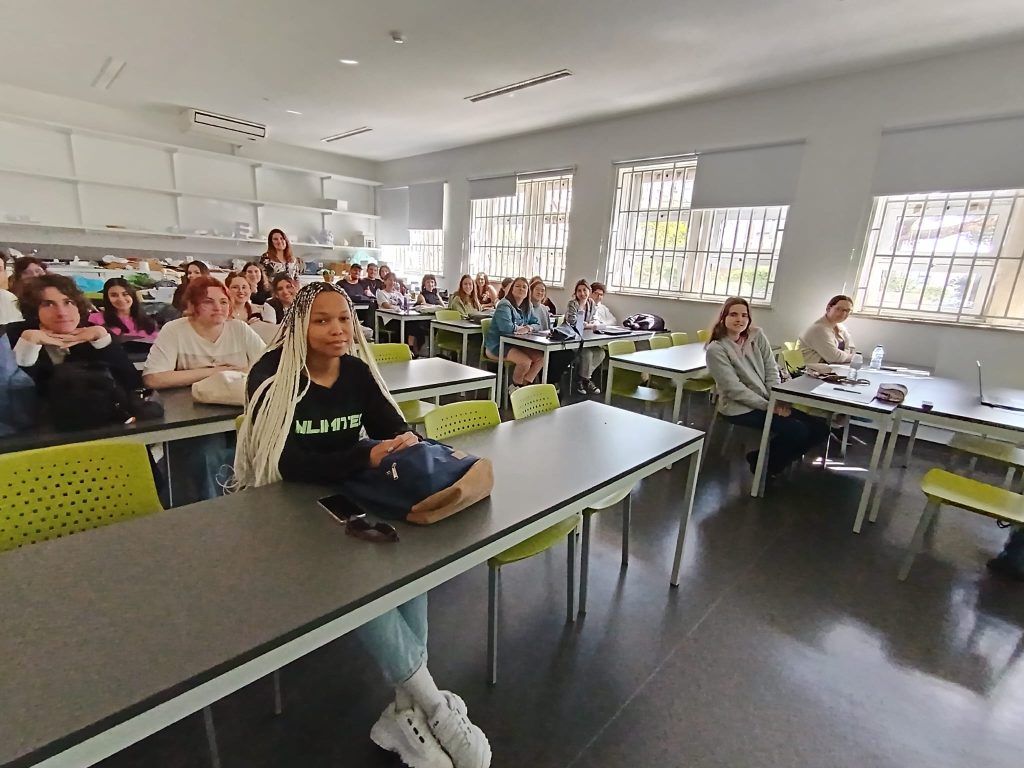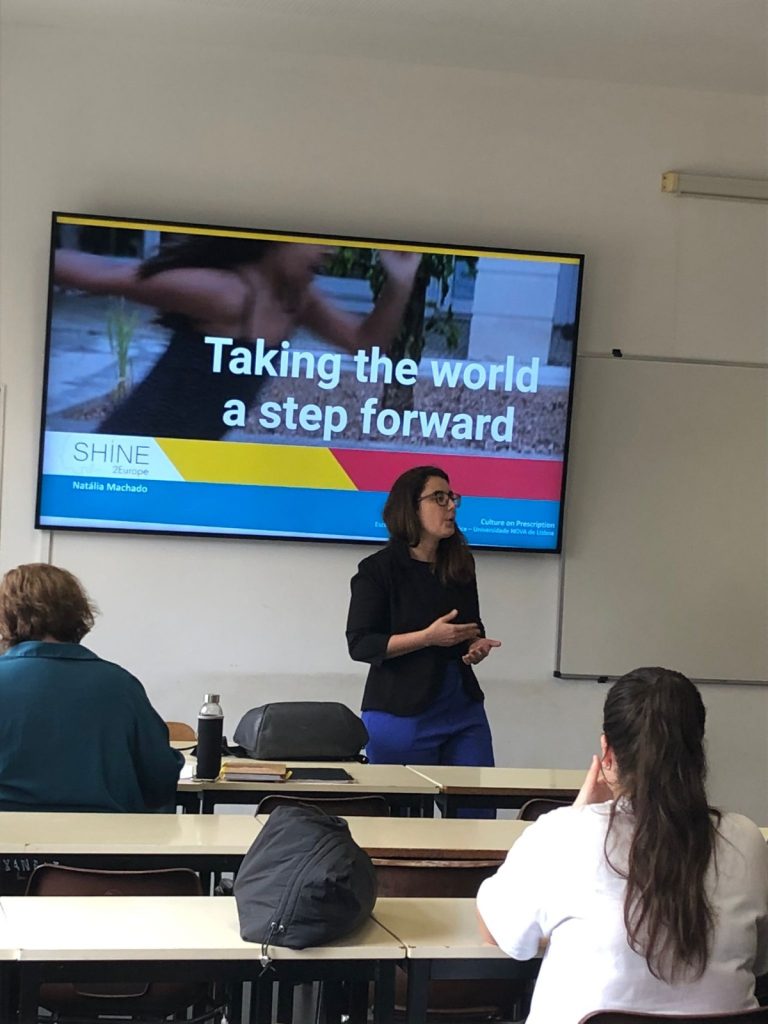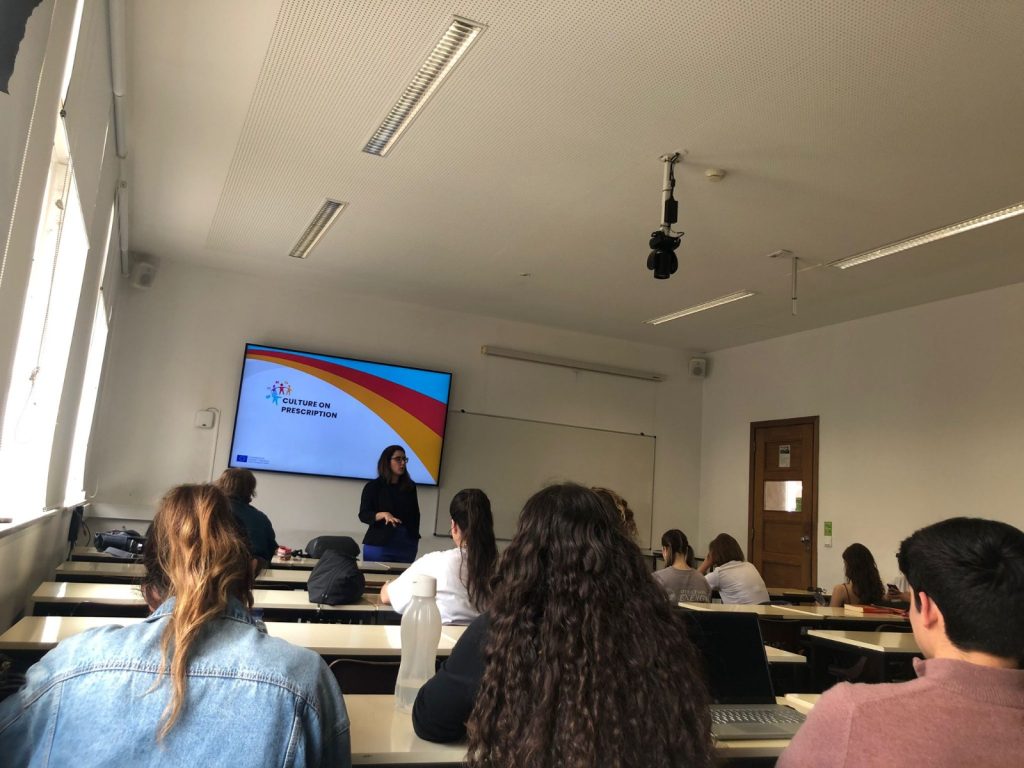SHINE 2Europe organised the Culture’s multiplier event in Portugal! The event was a collaborative effort between NOVA University Lisbon and the Coimbra School of Education, consisting of two sessions at each institution. During these sessions, participants had the opportunity to get to know the Culture on Prescription project in depth, exploring themes such as social and cultural prescription, as well as obtaining information on the project’s results.
In total, eighty-nine participants attended the four sessions, fifty-two in person and the rest online. Their great interest in the topics discussed and the project’s methodology was clear. The general consensus among participants was that cultural prescription has the potential to improve the quality of life in general, particularly for individuals living in loneliness and isolation. In addition, participants stressed that the results of the project offer valuable insights for initiating changes in perspective regarding the meaning of community involvement.
At the start of the Multiplier Event sessions, participants were asked to suggest social activities that could have a positive impact on someone’s mental health, along with explanations for their choices. A significant number of responses focused on cultural and outdoor activities, underlining the alignment between the main theme of the project and the interests of the audience. Consequently, discussions revolved around the social prescription methodology and the correlation between art, culture and improving quality of life.
During the presentation, special emphasis was placed on the Facilitator’s area and the training kit. This allowed participants to gain a deeper insight into the European curriculum and the range of resources available to facilitators.
During one session, a participant shared her intention to take on the role of facilitator in her village and to seek the support of her mother (as an older adult) to act as a link worker, facilitating the promotion of cultural activities in her community.
In another session, there was a strong focus on evaluation methods and strategies for assessing the benefits of social and cultural prescription. Participants were very interested in gaining a deeper understanding of the results of the pilot initiatives and how the methodology could be effectively implemented in practical contexts.



